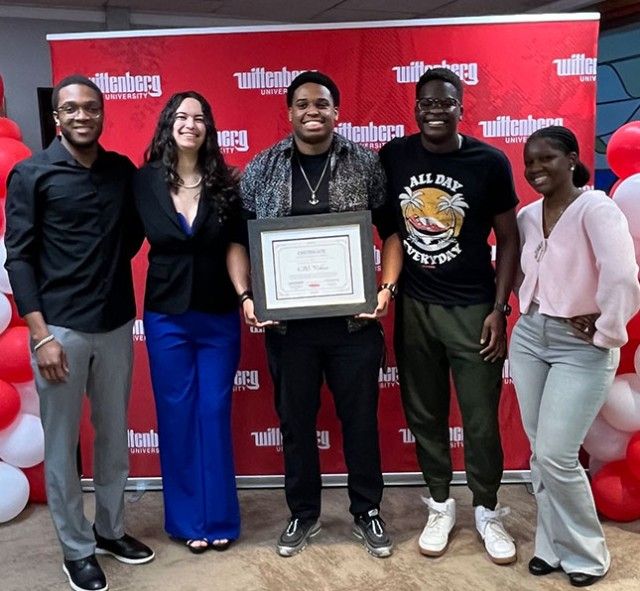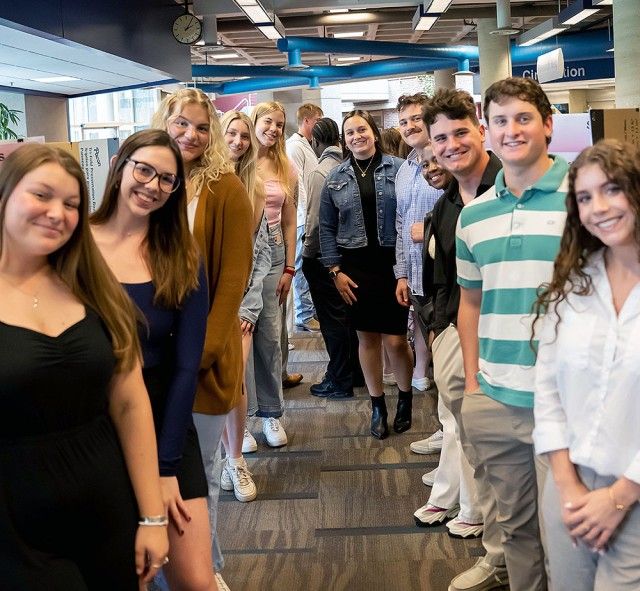The Wittenberg University Board of Directors voted June 18 to take action on plans and proposals that had been in the works for months, discontinuing academic programs and taking other actions to address the college’s growing financial challenges, which have been magnified by the coronavirus pandemic.
The Board accepted the recommendations of the 11-member Academic Program Futures Committee (APFC), which included President Michael Frandsen, Provost Michelle Mattson, Board members David Baines, the Rev. Jonathan Eilert, Wendy Ford, James Lakso, and Eric Rusnak, and faculty members Sally Brannan, Adam Parker, Patrick Reynolds, and Jeremiah Williams. The faculty members were appointed by the President on the recommendations of the Provost and in consultation with the Faculty Executive Board. The APFC was formed by the Board in February and charged with finding savings of $2.5 million from academic program expenses.
Those savings approved by the Board include:
- Discontinuing the following academic programs: archaeology minor; geology major and minor; French minor; Japanese; Russian minor; Russian and Central Eurasian Studies. In all cases, students currently involved in majors or minors in these programs will be able to complete their studies. Earlier in the year, the Board accepted recommendations from the faculty to discontinue the French major and the dance major and minor.
- Eliminating two tenured faculty positions, one each in geology and Japanese. The faculty members will continue at the University through the 2020-21 academic year.
- Not filling some other faculty positions left open by retirement and resignation.
- Eliminating staff positions, including dissolving the Graduate and Professional Studies office and reducing staffing in other areas.
“These are painful but absolutely necessary steps,” said the Rev. Jonathan Eilert, chair of the Board of Directors. “We’ve spent months working on these plans. We’ve heard from faculty, staff, students, parents, and alumni. The decisions we’re making reflect input from all those groups to help us reach this point. I also fully understand that people are losing jobs and academic programs are being eliminated. Those are among the most difficult decisions any university must make. And it speaks to the serious financial situation we face.”
Universities across the country were wrestling with financial challenges before the COVID-19 pandemic heightened the crisis. Those challenges include a shrinking pool of college-age applicants, rising costs, and heavy debt obligations. Many others have made deep budget cuts to personnel and programs – and some colleges and universities have closed.
“We knew we needed to take decisive action now to address our current budget shortfalls and to set Wittenberg on a path to financial sustainability,” Eilert said.
President Frandsen acknowledged that it will be a different Wittenberg University opening in the fall.
“The pandemic forced us to re-think health and safety, but more than that it reinforced in a very stark way that we must be more agile and able to adapt to the changing needs of our students,” Frandsen said. “We will be a dynamically creative University, we must continue to make changes, and we are confident that will help drive our financial health.”
The Wittenberg president also cited concrete reasons for optimism. Re-opening plans for in-person classes continue, with the 2020-21 academic year beginning on August 17, a week earlier than originally planned. Frandsen noted that on-campus visits for prospective students resumed on June 8, and there have been two prevalent areas of concern: “When do classes start? And how is this going to work for students?”
“We know when classes are starting,” Frandsen said. “And we’re working every day on how we’ll reopen safely, but differently.”
Frandsen also said that the freshman class entering in 2020-21 is 16% larger than the previous year’s freshman class. First to second year retention – a key factor in students staying to get their degrees – is tracking at the highest rate since 2014, and fundraising has continued at a very strong pace.
“All these facts point to Wittenberg coming out on the other side of this crisis much better positioned for the educational needs of our students and their families,” Frandsen said. “All of higher education is adapting and evolving. We plan to embrace the challenges and opportunities of change.”







